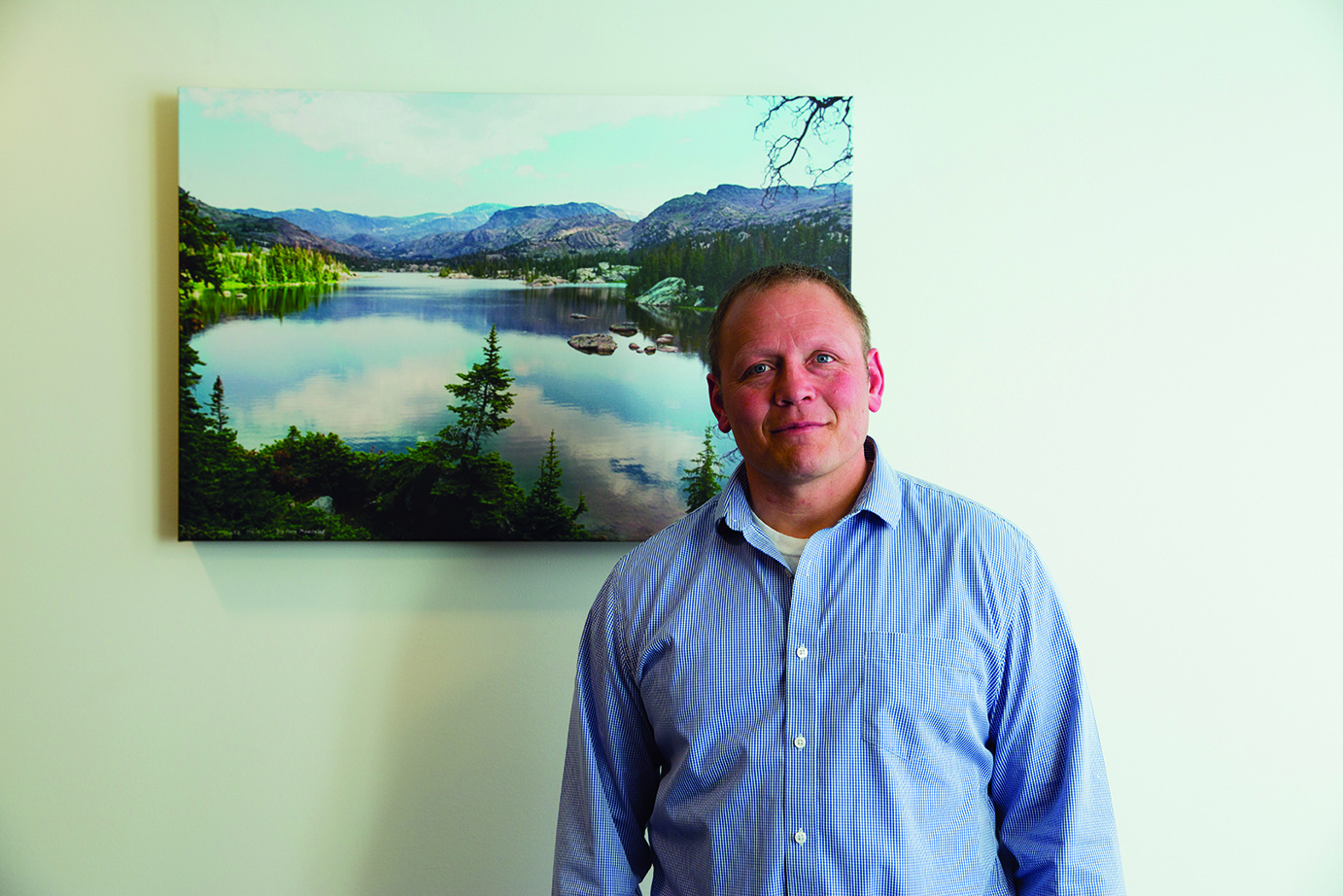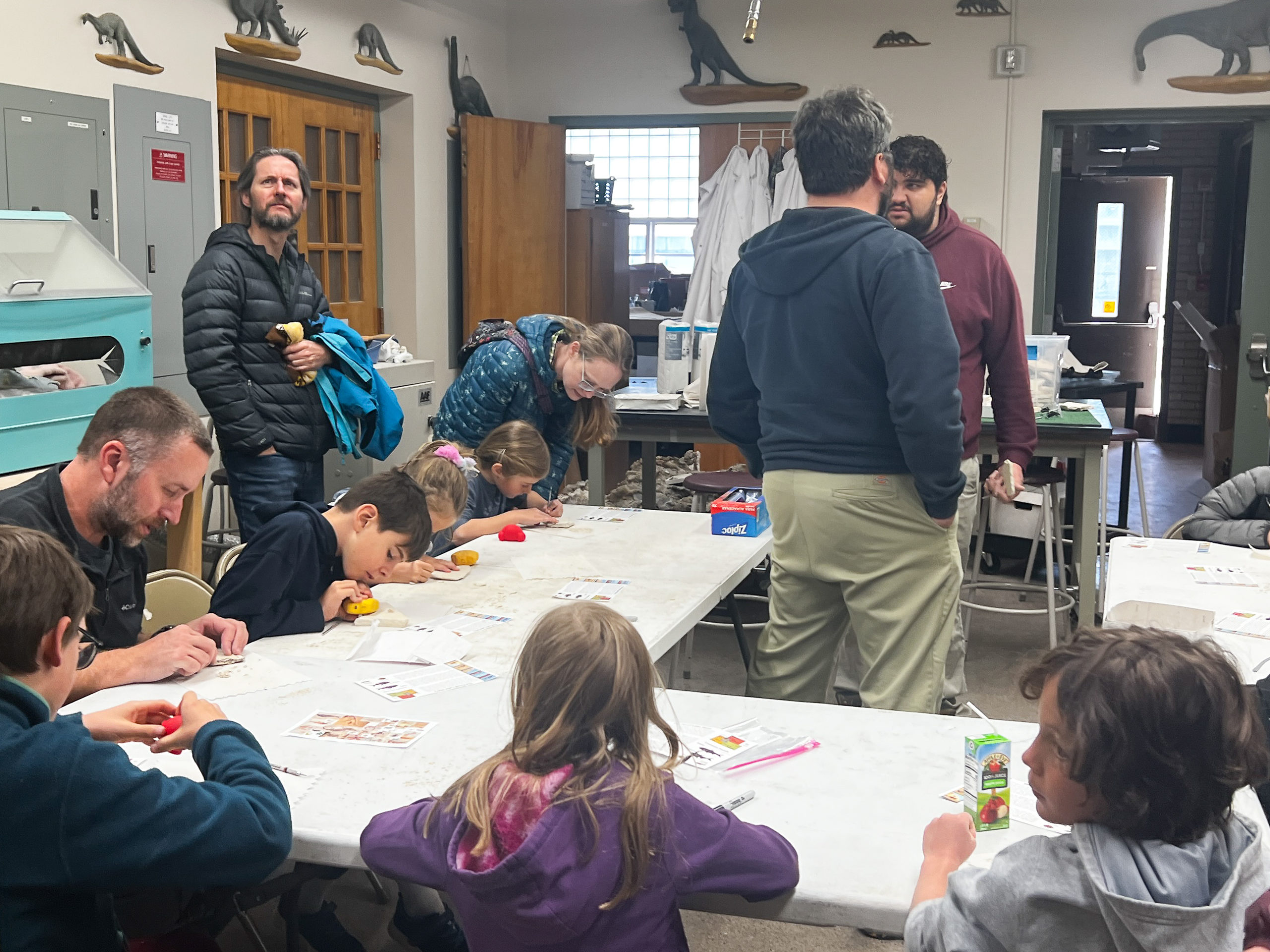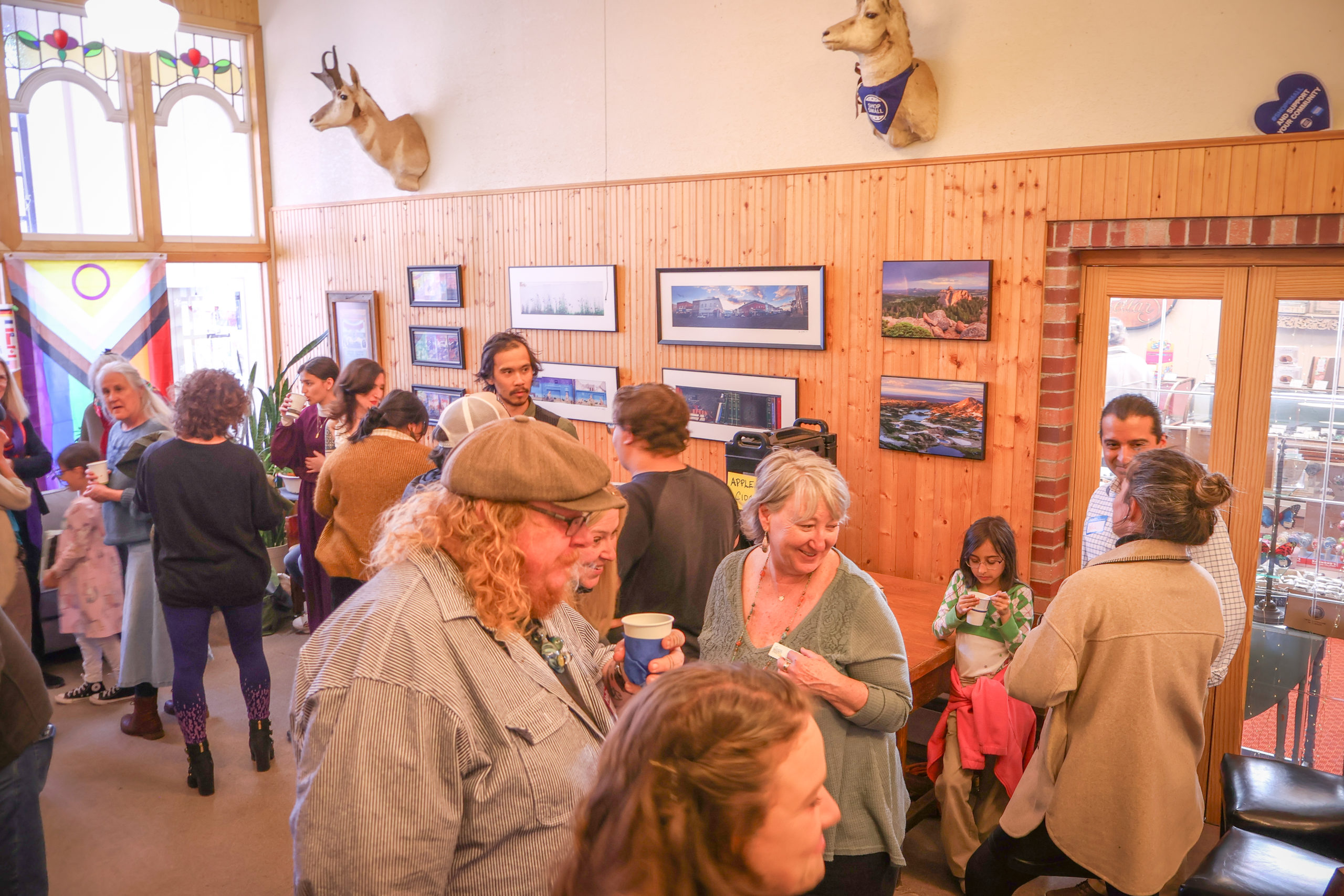David Finnoff is a researcher, coach and instructor who pours his heart into everything he does.
One way to describe the activities in a person’s life is to compare them to a series of light bulbs. Each lightbulb represents anything that takes time like a job or a hobby. The more time and energy a person puts into that activity, the brighter the light bulb is.
A person may only be able to produce so much energy to light these light bulbs. For many people, some light bulbs are brighter than others are, and many of the light bulbs cannot be on simultaneously.
There exist people who can keep multiple light bulbs bright. These people are passionate about everything they do and derive a joy in working hard. Finnoff is one such individual.
Receiving both his B.S. and Ph.D. in Economics from the University of Wyoming, Finnoff is currently an associate professor and director of undergraduate programs in the UW Department of Economics.
“I basically tell people I’m a natural resource economist,” said Finnoff.
“It’s been a really fun time here at the University of Wyoming for me because I get to work with fantastic undergraduate and graduate students. Typically they work on problems that I’m interested in, or similar to them. They find out things that I would’ve never known and figure out how to deal with it using better techniques than I have ever used.” – David Finnoff
He is especially interested in designing efficient policies for the best use of natural resources. Among other things, his research involves bringing natural science detail into economic modeling so that policies might be more applicable to the real world.
“That has required a lot of use of and learning a lot from other disciplines,” Finnoff said. In addition to economics, Finnoff learns more about ecology and epidemiology, which he says he does enjoy.
Essentially, Finnoff is interested in solving complex problems. Recently, his research involves risk reduction and creating economic strategies to combat the external costs of the interconnectivity of the world as trade and economic activity increases.
“For me, it’s really been fantastic looking into things that are interesting problems and then figuring out that I don’t know anything about it,” Finnoff said. “I have to go out there and read up on what other people have written on it and see if I can quite frankly incorporate what they think is important into an economic model of decision making.”
Finnoff’s academic career is not limited to research. He also teaches and advises both undergraduate and graduate students.
“It’s been a really fun time here at the University of Wyoming for me because I get to work with fantastic undergraduate and graduate students,” said Finnoff. “Typically they work on problems that I’m interested in, or similar to them. They find out things that I would’ve never known and figure out how to deal with it using better techniques than I have ever used.”
Finnoff cares a lot about what his students are working on. He loves teaching because, for him, it is giving back to the community. He desires most to pass on the tools to ensure success for the next generation.
His performance is often recognized. He was named “Top Prof” of 2017 by the University of Wyoming Cap and Gown Chapter of Mortar Board as well as being awarded the College of Business Advisory Board Faculty Award in 2014, 2015, and 2017. He has a plethora of other awards that he has received from the university and other programs as well.
Finnoff is also a head coach of the University of Wyoming of Men’s Rugby club team.
According to Alex Knowles, co-head coach of the rugby team, rugby has always been a part of Finnoff’s life.
“He was exposed to rugby at an early age,” Knowles explains. “He actually went to high school in Scotland and grew up playing rugby league.”
Rugby stayed with Finnoff when he attended UW as an undergraduate.
Finnoff started coaching the UW Men’s Rugby team in the early 2000’s and then transitioned to being the head coach in 2013.
Sutton Willis, an economics undergraduate at UW and captain of the rugby team played under Finnoff but was also taught by him as an instructor.
“He is intense, confident,” Willis said. “He always knows what he wants to say.”
Willis describes that being a player and a student for Finnoff is a privilege.
Similar to the problem-solving in his research, Finnoff as a coach wants to find ways that the rugby team can succeed.
When Knowles joined the team as a coach, he said that Finnoff was “always in the know with rugby”. However, his coaching methods were a decade behind the rest of the world.
Nevertheless, Finnoff is understanding and dynamic. Finnoff cares about what he does and wants to ensure success. He and Knowles have worked together to improve the team, even setting up fundraising for the team.
“Rugby is a working man’s sport,” says Knowles.
The hours needed to play and coach rugby could qualify as another job. Not only are there practices during the week, but workouts and watching film is essential. Altogether, rugby is always on the mind for him.
Even with the duties of being a coach and the responsibilities of being an advisor and researcher, Finnoff still finds time to spend with those he cares about most: his family.
Finnoff spends every spare moment he can with his wife and children. They are quite active in sporting activities such as baseball, hockey, and soccer; therefore, Finnoff does his best to support, attend, and even coach them when he can.
“His love for his family is a big reason why I respect him as a person and look up to him as a role model,” Willis said. “He’s the best father, best husband as far I can tell.”
Finnoff continuously works to make things better for something greater than him. That’s why the undergraduate program, coaching rugby and his family are important to him.
That is how he can light up all the light bulbs at once because, for Finnoff, the joy of working comes from bringing a better future. The fact that he can work hard and balance life is astonishing considering everything he does.
“While the decisions are hard, they aren’t unbearable,” said Finnoff. “It’s not a job. It’s a very fulfilling use of my time and my life.”



